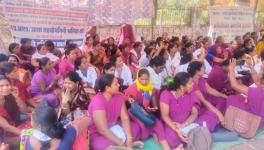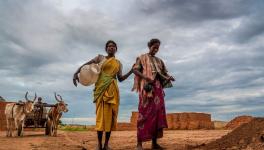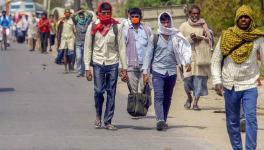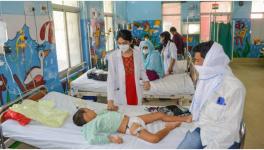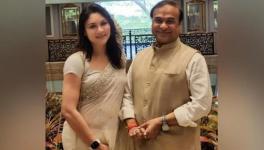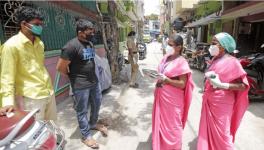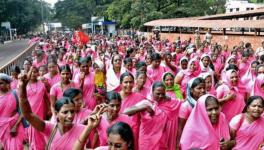Gaps in Cash Transfers Risks Leaving Out Many
Among the many relief solutions rolled out by the government, direct cash transfers have been promised through the government’s biggest financial inclusion programme, the Pradhan Mantri Jan Dhan Yojana (PMJDY). The accounts under PMJDY are known as Jan Dhan accounts, which are zero-balance accounts as there is no minimum balance required to open and maintain these accounts.
Since the launch of this scheme in 2014, the government claims to have transferred Rs. 7.23 trillion in subsidies directly to the bank accounts of the poor which eliminated subsidy leakages that saved around Rs. 1.41 trillion.
Poor households in a developing country such as India face a wide range of risks starting from crop failure to natural disasters, illnesses, accidents, unemployment or a public health emergency such as the ongoing Covid-19 pandemic. These risks make it harder—often impossible—for the poor to build the reserves and resilience needed to cope with unforeseen events. Experts on different aspects of poverty and vulnerability suggest that direct cash transfers to the poor can be one among many other key social-protection strategies to help households cope during these periods of risk.
Direct cash transfers can help households purchase the food they need immediately, during or after emergencies, and can help families invest in healthcare and children’s education if they are provided over a period of time.
The commitment to provide cash assistance of Rs. 500 to women Jan Dhan account holders every month for three months (April, May, June) to help families cope with the immediate crisis caused by the lockdown imposed to control the spread of Covid-19 was a welcome measure in the financial package announced by Finance Minister Nirmala Sitharaman on 25 March. It indicated that the government of India had rightly understood the magnitude of distress and the need to immediately put cash in the hands of the poor when the pandemic has severely disrupted people’s livelihood.
In order to assess the effectiveness of the delivery of this assistance, the National Coalition of Civil Society Organisations along with few Oxfam India partner organisations undertook a “rapid survey”. A total of 12,588 women were surveyed across 13 states. Of them, 1,044 reported having inoperative accounts. Another 920 did not know if their account is operational. Of the 10,624 respondents with operational accounts across 13 states, 20.8% of women reported not receiving any cash transfer in their accounts at the time of the survey and another 13.1% were not aware if the amount had been credited in their accounts.
The women surveyed found value in the direct cash transfer scheme, however, implementation challenges left out many of them. Out of 7,015 women who reported that money had been credited in their accounts, 42.1% had to go to the bank branch to know whether they have received the promised cash in their accounts. Given the strict lockdown imposed in the entire country one can only imagine the distress of these women in reaching the bank branches. Many could not and hence were unable to withdraw the money when they needed it most.
Further, many have been denied this meagre support due to the “inoperative” status of bank accounts. That this issue needs to be addressed is clear from the government’s own data, which says that every fifth Jan Dhan account (or 7.09 crore out of 30.78 crore accounts) are dormant in the country.
In 2014-2015, a detailed study was carried to understand the reasons behind inoperative Jan Dhan accounts. Interestingly, it found that many people had an existing normal bank account but also opened a Jan Dhan account in anticipation of receiving some benefits from the government. However, for all other purposes such as insurance or the overdraft facility, they continued using their primary non-Jan Dhan account. It is critical to facilitate the process of making the dormant accounts active and this would require concerted efforts by the Banking Correspondents or other service providers along with the governments.
A failure in doing so would lead to gaps and leaks in providing immediate cash assistance to the poor in the post COVID, period when climate change is increasing the frequency of floods, cyclones and other emergencies.
Many leading economists and experts have cited the example of conditional direct cash transfers in Brazil through its famous long-term Bolsa Familia programme. Nobel laureate Abhijit Banerjee recently said that money should be put into the hands of the people, especially the poor, in the form of cash grants to generate demand in these times of an economic slump. He said: “We need a large stimulus package like the US. India has announced a package that is about to 1% of its GDP and United States has announced a package of 10% of its GDP.”
Referring to the ongoing COVID-19 pandemic, Banerjee said that spending money is the easiest way to revive the economy. In the present circumstances this is possibly the only way to prevent hunger deaths and severe malnutrition among a large number of poor.
There are visible bottlenecks in the implementation of the PMJDY programme. To ameliorate the crisis, the cash benefit guaranteed to people should be immediately transferred to the Jan Dhan accounts held by women. Steps need to be taken to ensure immediate activation of the accounts that are not operational. The first and second instalments, that is, Rs. 1,000, must be transferred to the accounts that have been left out until now. The government should also consider providing this support for an additional three months as the likelihood of the crisis continuing for a few more months is very high.
Given the crisis situation for many households, authorities should consider handing over the cash to all women whose accounts are inactive as well. The local panchayat and block administration, or the post offices (as done in Telangana) can facilitate this. Banks must ensure that information regarding cash credited into the Jan Dhan accounts is conveyed to the account holders through mobile messages. Also, the local panchayats can work with banks to help people receive information about the same.
Lastly, it is important to accept that while there is no replacement for a well-oiled healthcare system, a working public education system, both of them state-funded, but DCTs are essential in this moment because of the enormity of the risks we face, especially for the poor who have no savings.
The author is director, Policy, Research and Campaigns at Oxfam India. The views are personal.
Get the latest reports & analysis with people's perspective on Protests, movements & deep analytical videos, discussions of the current affairs in your Telegram app. Subscribe to NewsClick's Telegram channel & get Real-Time updates on stories, as they get published on our website.










